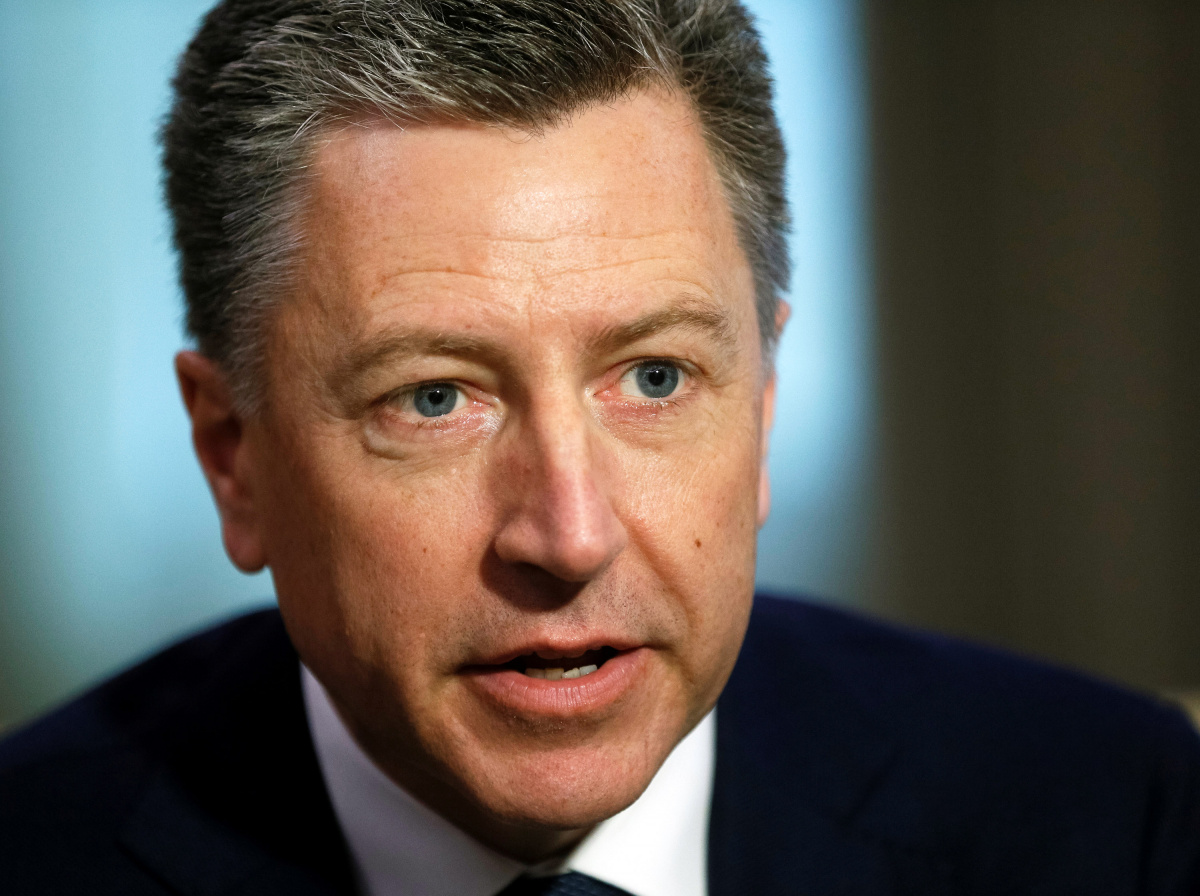Featured Galleries USUBC COLLECTION OF OVER 160 UKRAINE HISTORIC NEWS PHOTOGRAPHS 1918-1997
 Holodomor Posters
Holodomor Posters

Taking Action on Ukraine, by Ambassador Kurt Volker

Center for European Policy Analysis (CEPA)
Washington, D.C. Sat, Feb 20, 2021
Ukraine’s success remains as strategically important to the West as ever. Now is the time for the United States to renew its engagement and support. Secretary Blinken’s call with Foreign Minister Kuleba was a good start. Next should be a call from President Biden to President Zelenskyy, and the launch of a renewed strategic partnership across the full range of issues.

Official Washington is rightly focused on battling coronavirus and reinvigorating the economy, along with dealing with racial and social justice issues. Dealing with great power competition, notably from China, dominates national security thinking. The rest of the world has great hope for a return to traditional models of American engagement and leadership, but recognizes it will take time for the new administration to get settled.
In Ukraine, however, anxieties are growing that can easily be dispelled by Biden’s team.
To lay these out from a Ukrainian perspective: President Biden spoke with President Putin about Ukraine after just one week in office, without first consulting Ukraine, which is the victim of Russian aggression. He has still not spoken with President Zelenskyy, yet has called well over 30 other Heads of State.
In the White House statement reporting on the Putin call, it said President Biden reaffirmed U.S. support for Ukrainian sovereignty, which of course is good. However, this inadvertently omits stating that the United States supports Ukraine’s “territorial integrity.” Such an omission is critical, and noteworthy in Ukraine, given Russia’s continued occupation of Donbas and claimed annexation of Crimea.
More recently, the chief editor of RT, Russia’s main global propaganda arm, attended a conference in Russian-occupied Ukraine and called on “Mother Russia” to bring the Donbas “home.” Russian ceasefire violations in Donbas have escalated in the past month, and just this week, three Ukrainian soldiers were killed by a Russian-controlled mortar attack. The “Normandy Format” meetings have broken down, and there are no serious negotiations ongoing to press Russia to end its aggression and restore peace and legitimate governance in Donetsk and Luhansk.
The IMF recently concluded a “mission” to Ukraine inconclusively – quite rightly demanding a restoration of reforms that have been reversed in the past year. Still, the news was hard to take, as Ukraine continues to seek clear signals of Western support that have not been forthcoming.
Against this backdrop, the United States can do several things to demonstrate continued support for Ukraine, and in doing so, to advance U.S. interests.
- The planned Biden-Zelenskyy phone call should take place as soon as possible. The two Presidents need not become pen-pals, but it is important to establish contacts at the head of state level, to set the tone for cooperation among the administrations of both countries. This has become critically important for Ukraine.
- The White House spokesperson should express outrage at the suggestion by the Kremlin’s RT proxy that Donbas should be annexed by Russia. This Kremlin trial balloon is illegal at every level, a provocation intentionally aimed at the White House, and easily deflected if the U.S. responds.
- Secretary of State Blinken should reaffirm U.S. adherence to the Pompeo Declaration of July 25, 2018, in which the United States committed to refuse “to recognize the Kremlin’s claims of sovereignty over territory seized by force in contravention of international law.” This is a modern equivalent of the Welles Declaration of 1940, in which the United States refused to accept Russia’s claimed annexation of the Baltic States – an action that proved critical 40 years after the fact.
- The United States should re-establish a “Strategic Dialogue” with Ukraine on fundamental issues of geostrategic importance. Twice-yearly meetings of the Secretaries of State and Defense with their Ukrainian counterparts would put this on the right footing.
- The United States should renew its insistence on Ukraine implementing far-reaching reforms. Lasting success on this front has eluded the country since independence. Of course, neither the U.S., nor the EU, nor the IMF can do for Ukraine what it must do for itself. But at the same time, a clear strategy and U.S. leadership are essential to give Ukrainian leaders the confidence and political cover they need to make what are incredibly painful and difficult decisions. The U.S. can also help by vigorously pursuing criminal cases already underway against certain Ukrainian oligarchs, and working with Ukraine to improve key anti-corruption and law enforcement institutions that have still not lived up to their potential.
- Finally, the U.S. should join with the EU, IMF, and other international supporters to help Ukraine implement far-reaching anti-trust legislation. Ukraine’s current anti-monopoly commission is ineffective. In a situation where a handful of people control vast segments of the economy, media, judiciary, state-owned industries, Rada votes, and state administration – corruption is merely the symptom of a failing system, not the disease itself. The Ukrainian leadership needs to take ownership of such far-reaching reform, but again can only succeed with staunch U.S. and EU support.
Such a roadmap can be easily and effectively launched by the United States. But the U.S. must act quickly, as the forces that oppose such an agenda are already mobilizing.












